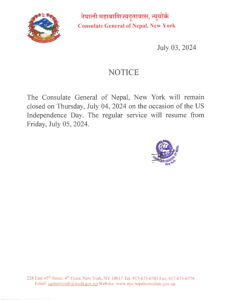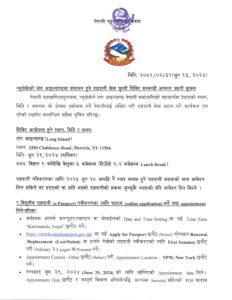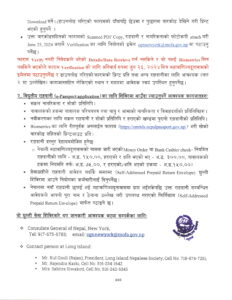Global Investment Trends
Nepal has been pursuing a liberal foreign investment policy and been striving to create an investment- friendly environment to attract FDIs into the country. The areas of investment include industrial manufacturing, services, tourism, construction, agriculture, minerals and energy.
Nepal encourages foreign investment both as joint venture operations with Nepalese investors or as 100 per cent foreign-owned enterprises. The few sectors that are not open to foreign investment are either reserved for national entrepreneurs in order to promote small local enterprises and protect indigenous skills and expertise or are restricted for national security reasons. Approval of the GoN is required for foreign investment in all sectors. No foreign investment is allowed in cottage industries. However, no restriction is placed on transfer of technology in cottage industries.
Most investment gurus believe that agriculture and mining will produce the best returns around the world in the next 20-30 years. Food prices are expected to go up because the growing middle class population in emerging markets will demand more expensive food including meat and more jewelry. Worldwide inflation will be higher than expected; so holding precious metals will be better than holding cash.
Nepal is close to India and China which will have the largest surge in the middle class population in the history of the world. As families become smaller and wealthier, they will start eating well. Meat consumption will rise. As you know, it will take more agricultural resources to produce more meat.
These families will also be more interested in traveling. Due to proximity, Nepal is a prime destination for both Chinese and Indian tourists.
Investment opportunities in Nepal
1) Land, Land and More Fertile Land
Although land prices in the Terai and rural areas in Nepal are starting to go up, they are still cheap. Land can provide dividends in terms of crops while waiting for the value to go up in a couple of decades.
Jeremy Grantham, a famous investor who predicted the 2007 financial meltdown, predicts that state-of-the-art organic farming is the best investment in the world now. Soil in the US and developed countries are starting to get depleted due to large-scale unsustainable practices, and we are not far away from a global food crisis. In Nepal, we can combine both traditional and modern organic farming techniques to grow food in anticipation of the rapid food price increase in the future.
Risk:
Growing food requires a lot of farming work and dedication. Most of the younger men in Nepal have moved to Gulf countries for manual work, which has caused a shortage of farmers to do seasonal work on a large-scale agro-business.
2) Tourism Investments
Nepal is the a country in the world which is sandwiched between two fastest growing large economies. India and China will have a huge growth in middle class population eager to travel. Nepal can tap the growing tourism market by anticipating where Chinese and Indian tourists may want to spend.
Buying shares in tourism-related stocks such as hotels, airlines or restaurants is a passive way to tap this potential. You can also open a resort or travel agency in anticipation of the boom. If you open up your own venture, the key to success is to be appealing and different from thousands of small-scale tourism businesses in Thamel.
Risk:
Tourism is a seasonal business at the moment. It also requires a lot of time and dedication if you decide to be an active investor. Worldwide media coverage about protests and violence during the political turmoil can cause the business to drop in the short run.
3) Hydro Power:
All of us know about the potential of hydro power in Nepal. While investing in large-scale hydro power plants may be out of reach for most of us, it is possible to buy shares in related companies when they go public.
Several hydro power projects are underway in Nepal. In the next 10 years, I expect that several of them will become public. This will provide a good opportunity for an ordinary investor without millions of rupees to invest.
Risk:
Political risk may cause the projects to shut down. Also, flooding in the monsoon season or low water levels in the winter season may cause variation in output.
4) Outsourcing from US, Europe and Australia:
Most foreign companies are looking to outsource programming, research or labor-intensive work to developing countries. These companies will save a substantial amount of money by doing so. Such outsourcing opportunities especially exist in web programming because of a large number of students interested in computer engineering in Nepal.
Risk:
Competition is intense among developing countries around the world. A large project can quickly move to a competitor in Eastern Europe or India because the competitor can generate similar or better quality at a cheaper rate.
5) Medical Tourism:
Nepal has produced some of the best doctors around the world. Surgeons from Nepali hospitals also do surgeries in Singapore, UK and USA. It is true that Nepali hospitals lack the infrastructure and equipment found in developed countries, but the quality of doctors is on par with US doctors.
So a good opportunity to invest is in medical tourism in Nepal. Healthcare in the US is very expensive. A simple bypass surgery costs around a hundred thousand dollars, while the same surgery can be done in Nepal at a fraction of the price. Countries such as Thailand, Costa Rica and India have captured the medical tourism market.
Since Nepal is a country endowed with natural beauty, visiting Nepal for pleasure as well as medical reasons will be very reasonable for US visitors.
Risk:
It may take some time to develop this industry because the perception about Nepali hospitals is not very good. Political risk is also an issue.
These are only a few investment ideas that can generate significant returns over the years. There will be even more opportunities in Nepal as the middle class population grow in Nepal.
When you are in Nepal, it is hard to appreciate the future prospects of Nepal. The idiom ‘grass is always greener on the other side’ is so true in our case. However, if you think deeper and pay attention to global trends, it is possible to generate a higher rate of return on your investments in Nepal than in developed countries.
Investment Board:
With the view to attracting foreign as well as domestic Investment to boost the economy, the Government of Nepal has constituted a high level Investment Board, chaired by the Prime Minister of Nepal. The main objective of this board is to facilitate investors in investing in the potential sectors in Nepal. It provides one window facilities to the investors.
Useful Link:
http://www.investmentboard.gov.np/




